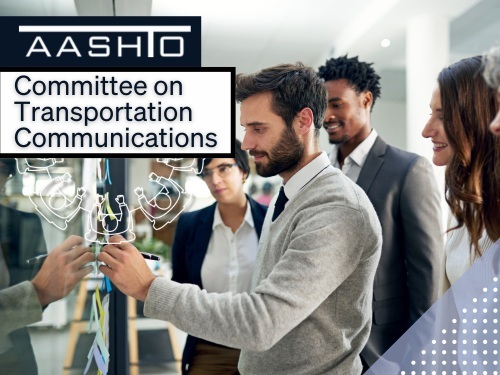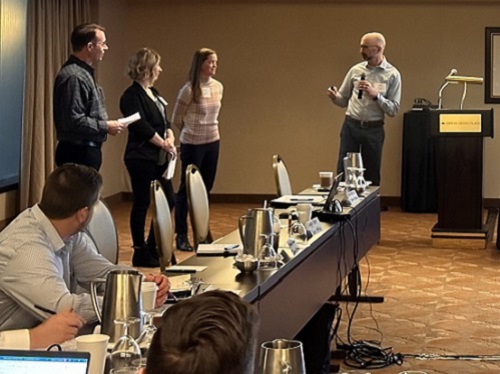The American Association of State Highway and Transportation Officials, in partnership with the National Association of State Energy Officials and the Joint Office of Energy and Transportation or JOET, recently helped host a planning meeting for the Midwest region regarding the $5 billion federal National Electric Vehicle Charging Infrastructure or NEVI program.
[Above photo by AASHTO]
The meeting brought together key executives and managers from state energy offices, state departments of transportation, and other stakeholders to enhance state-federal coordination on electric vehicle or EV charging infrastructure planning and implementation via the NEVI program.

[Editor’s note: You can read more about the latest federal efforts to build out a national EV charging network by clicking here.]
The NEVI program – funded in part through the $1.2 trillion Infrastructure Investment and Jobs Act or IIJA enacted in November 2021 – seeks to build a national network of 500,000 EV chargers by 2030.
AASHTO noted that all 50 states, the District of Columbia, and Puerto Rico submitted EV infrastructure deployment plans required to unlock the first round of NEVI formula funding provided through the IIJA by August 2022.
This Midwest gathering is part of a group of regional meetings being held in line with goals outlined in a memorandum of understanding or MOU signed in February 2022 between AASHTO, NASEO, and JOET – a joint initiative overseen by U.S. Department of Transportation and U.S. Department of Energy – to coordinate nationwide investment in EV charging station infrastructure.
The meeting allows states to engage in discussions with federal partners and electric system experts to identify region-specific EV charging electric system and grid challenges for states to address in their NEVI planning and implementation.
Meeting participants learned how to address current workforce gaps of state and local transportation agencies for NEVI implementation and develop “year two” state-level EV Infrastructure Deployment Plans with the ultimate goal of building a “convenient, reliable, affordable, accessible, and equitable national EV charging network.”
 AASHTO
AASHTO
Webinar: Preparing for the New Highway Safety Manual
August 29, 2025 AASHTO
AASHTO

